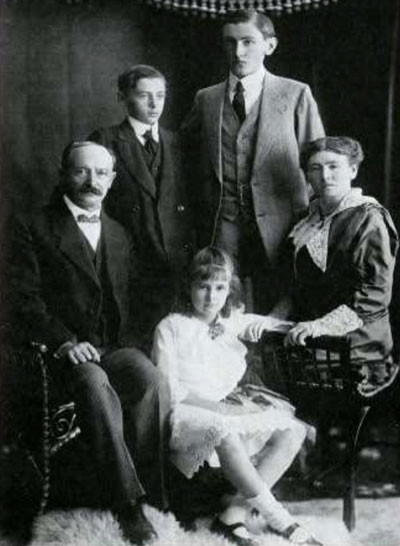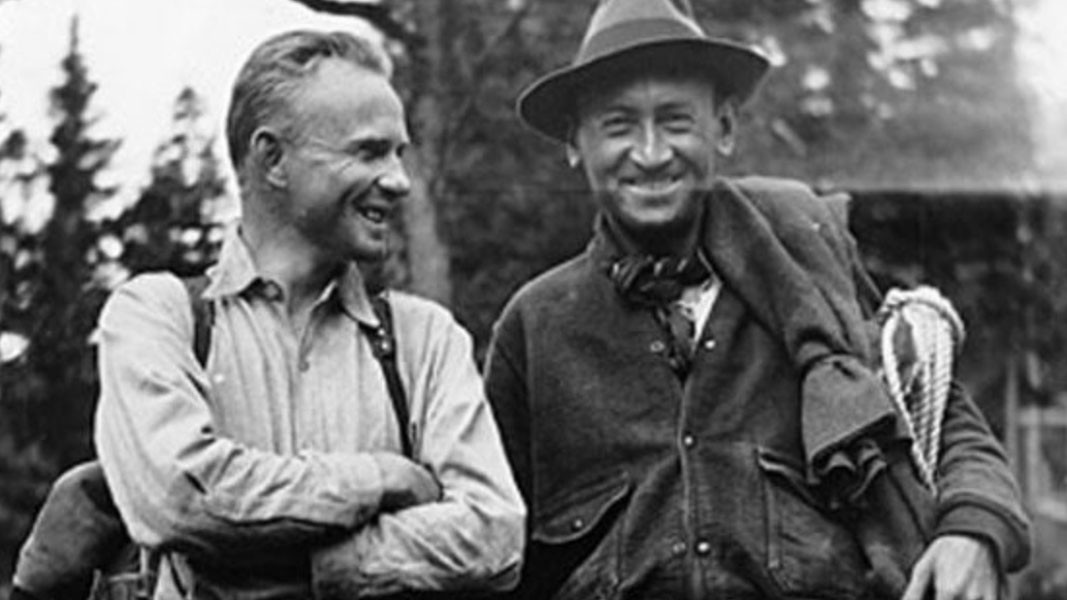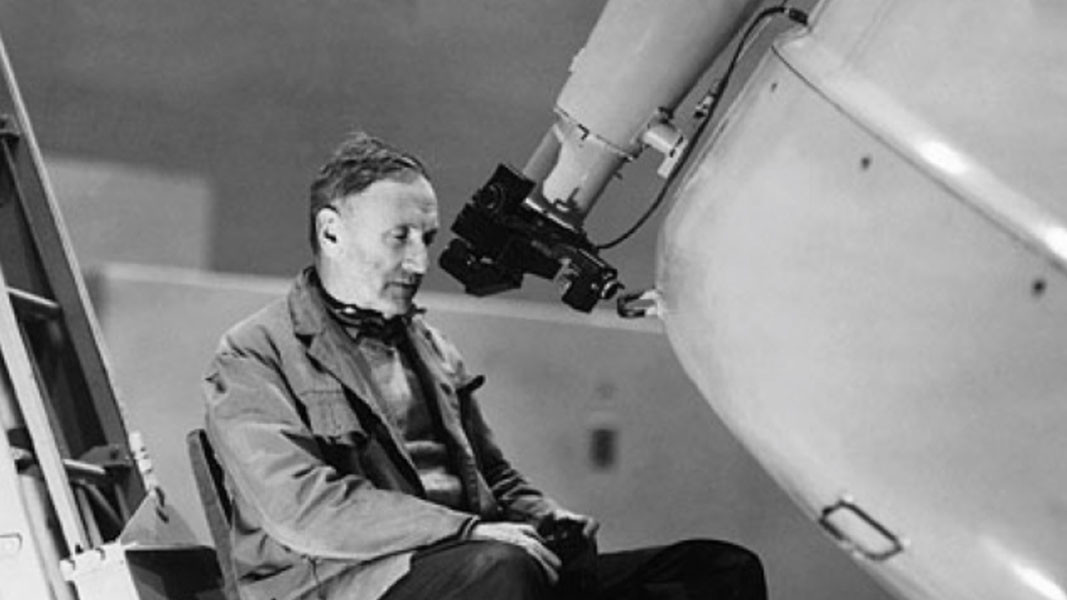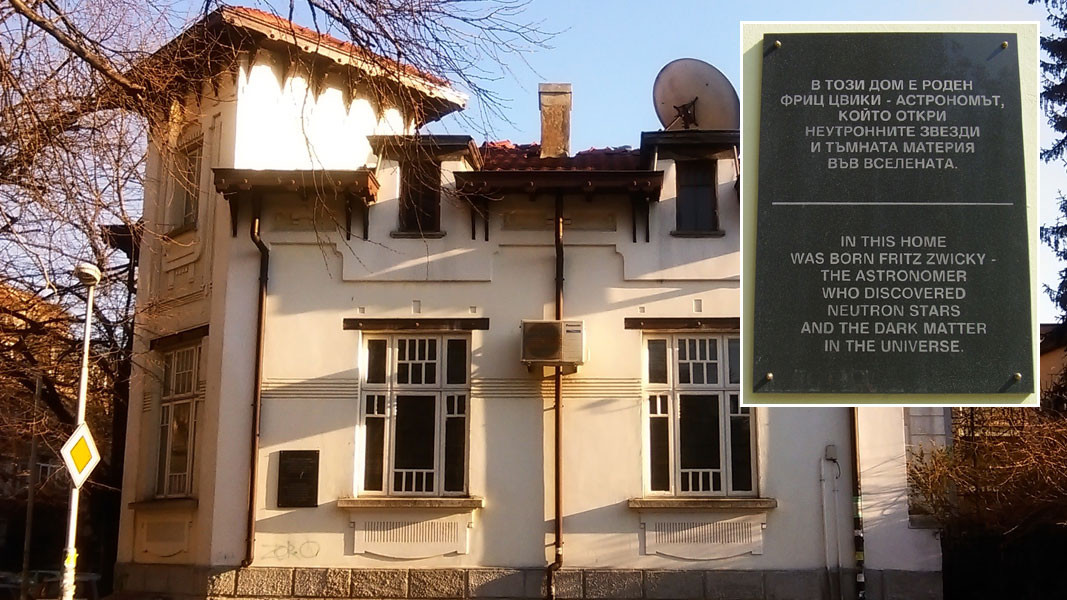One of the foremost astronomers and astrophysicists of all time, whose name was to remain connected with the stars forever, was born in Bulgaria, just before the turn of the 20th century. On 14 February, 1898, a male newborn baby was registered at Varna city municipality by the name of Pritz F Zwicky, but despite the clerical error, in the years to come, his name would become known to the entire science world for the amazing discoveries he made.
 Fritz Zwicky spent the first years of his life in his home town until his father sent him to his grandparents in Mollis, Switzerland where he attended school. The Swiss merchant Fridolin Zwicky, who ran a successful metal trading business in Varna, had dreams of his son following in his footsteps. But the boy was fascinated by science and he graduated experimental physics from the Swissfederalpolytechnicschool. Meanwhile he won a Rockefeller Foundation College Scholarships, and in 1920 started work at Caltech, where he remained for the rest of his life. Fritz Zwicky managed to transport one of the first so-called Schmidt telescopes from Germany to America, and its wide field of vision helped him observe distant clusters of galaxies and make his amazing discoveries.
Fritz Zwicky spent the first years of his life in his home town until his father sent him to his grandparents in Mollis, Switzerland where he attended school. The Swiss merchant Fridolin Zwicky, who ran a successful metal trading business in Varna, had dreams of his son following in his footsteps. But the boy was fascinated by science and he graduated experimental physics from the Swissfederalpolytechnicschool. Meanwhile he won a Rockefeller Foundation College Scholarships, and in 1920 started work at Caltech, where he remained for the rest of his life. Fritz Zwicky managed to transport one of the first so-called Schmidt telescopes from Germany to America, and its wide field of vision helped him observe distant clusters of galaxies and make his amazing discoveries.
“Studying these clusters of galaxies, Fritz Zwicky applied the so-called virial theorem to calculate their mass,” says Ventsislav Dimitrov from the Institute of Astronomy of the Bulgarian Academy of Sciences. “That was how he was able to prove that the total mass of the galaxies is different from the mass of the stars in them (the luminous substance we see through the telescope). Until then it was thought that a galaxy is as massive as the sum of the mass of all stars in it. But his study showed galaxies had a different kind of mass which does not shine like the stars and is therefore invisible. Fritz Zwicky gave this matter a name – dark matter.”

On 15 January, 1934, the Physical Review published a summary of a presentation made by Fritz Zwicky and his associate Walter Baade, regarded as one of the most visionary documents in the history of physics and astronomy, a document that makes mention of supernovas and neutron stars for the first time.
“Massive stars, when they exhaust their fuel – hydrogen – and reach the end of their lifespan, collapse in the blink of an eye and turn into supernovas,” the astronomer goes on to say. “That is an event we call “supernova” – the star itself explodes and in fractions of a second spews out material from its nucleus into the surrounding interstellar space. In Fritz Zwicky’s time people knew there were so-called new stars which suddenly became very bright due to processes taking place inside them. But that was the time the neutron was discovered, and the scientist said that it was possible that when a star collapsed it turned into a neutron star by passing through a process called “supernova”. That was how he introduced the term “neutron star”.”

For his remarkable discoveries which were way ahead of their time, and which were only understood and developed decades later, Fritz Zwicky was awarded the presidential Medal of Freedom by US President Harry Truman and the Gold Medal of the British Royal Astronomical Society.
Besides being an extraordinarily gifted scientist, people say he was very warm-hearted, a benefactor, and that he was against the development and use of nuclear fuel. Fritz Zwicky died at the age of 75, and now there is nothing but a commemorative plaque on the wall of his family’s’ house in Varna to show that this was the place where one of the greatest minds of the world was born.

“Why people don’t talk about him more here, in Bulgaria, I really couldn’t say,” Venstislav Dimitrov says. “Fritz Zwicky is a great astronomer and scientist, and though he is not Bulgarian, he was born and raised here during the first seven years of his life – the most important formative years in one’s life. Of course we, astronomers know all about him, because when we work with supernovas, with dark matter, with galaxies, we are in fact working with the discoveries he made, with his theories and hypotheses.”
English version: Milena Daynova
Photos: private libraryThe Aprilov National High School in the beautiful Bulgarian town of Gabrovo nestled in the foot of the Balkan Range celebrates its 190th anniversary in 2025. Following in the traditions of the Gabrovo Mutual School – the first secular school in..
The Boyana Church will be an attractive center for the delegates of the 47th session of the UNESCO World Heritage Committee , who will gather in Sofia in July this year. The Church of St. Nicholas and St. Panteleimon is one of the..
The Nikola Vaptsarov Naval Academy in Varna has marked 144 years since its founding. A period in which the educational institution has followed the trends for highly specialized training of specialists in various professional fields..
Many citizens of Sofia took advantage of the opportunity to see the Enina Apostle and the Argirov triod manuscripts which were exhibited today for two..

+359 2 9336 661
